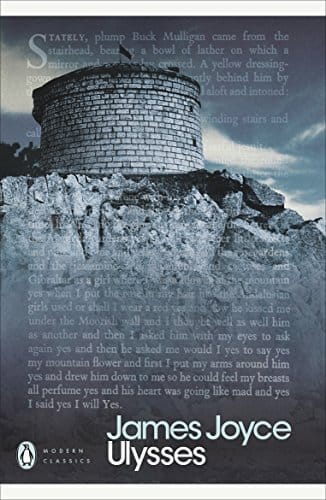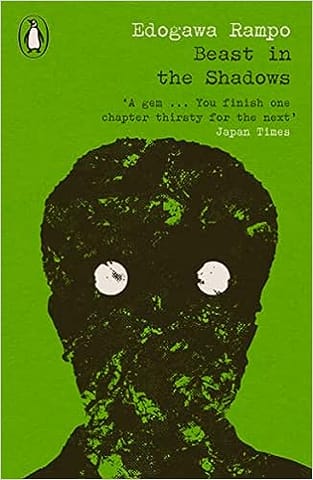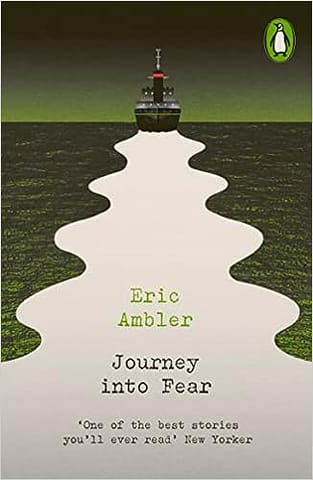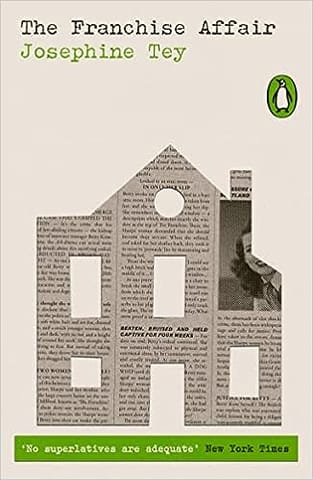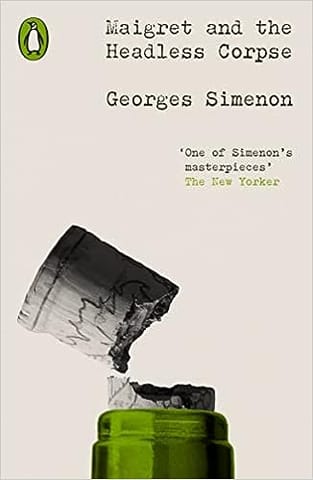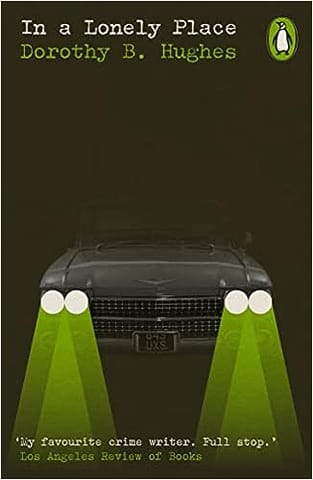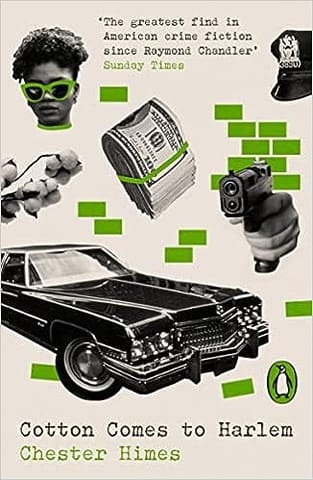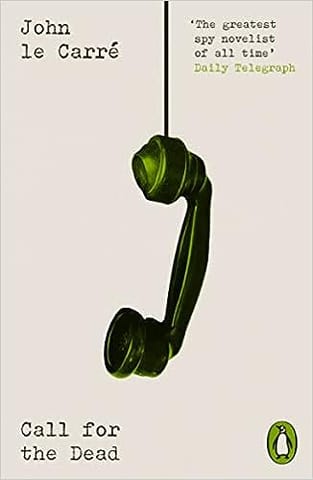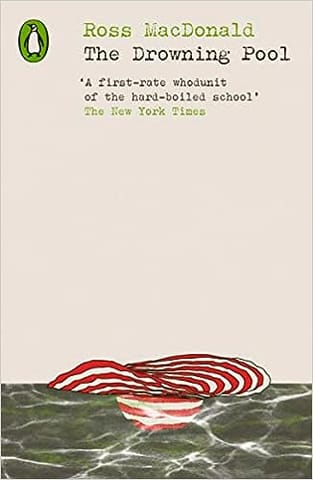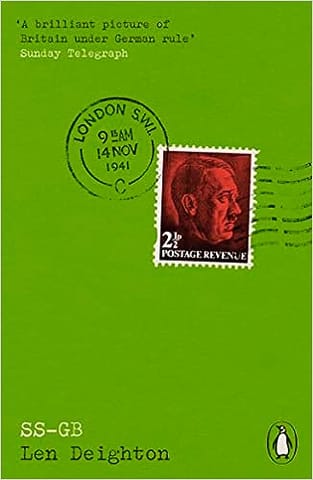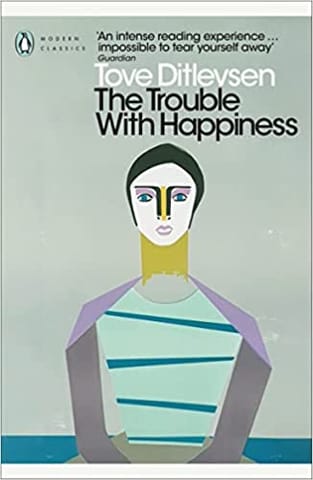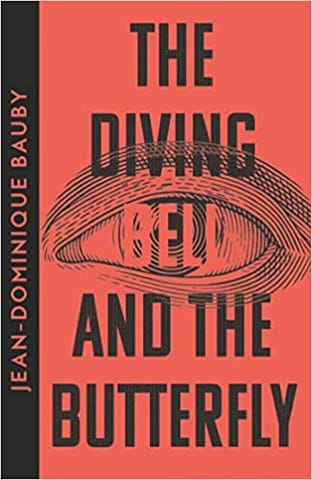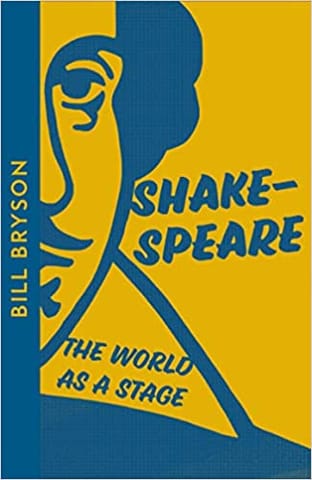-
Non-ficton
- Non-ficton
-
Contemporary Fiction
- Contemporary Fiction
-
Children
- Children
-
Comics & Graphic Novels
- Comics & Graphic Novels
-
Non-Fiction
- Non-Fiction
-
Fiction
- Fiction
'Everybody knows now that Ulysses is the greatest novel of the century' Anthony Burgess, Observer
Following the events of one single day in Dublin, the 16th June 1904, and what happens to the characters Stephen Dedalus, Leopold Bloom and his wife Molly, Ulysses is a monument to the human condition. It has survived censorship, controversy and legal action, and even been deemed blasphemous, but remains an undisputed modernist classic: ceaselessly inventive, garrulous, funny, sorrowful, vulgar, lyrical and ultimately redemptive. It confirms Joyce's belief that literature 'is the eternal affirmation of the spirit of man'.
'The most important expression which the present age has found; it is a book to which we are all indebted, and from which none of us can escape' T. S. Eliot
'Intoxicating ... a towering work, in its word play surpassing even Shakespeare' Guardian
Amazon.com Review
Among other things, a novel is simply a long story, and the first question about any story is: What happens?. In the case of Ulysses, the answer might be Everything. William Blake, one of literature's sublime myopics, saw the universe in a grain of sand. Joyce saw it in Dublin, Ireland, on June 16, 1904, a day distinguished by its utter normality. Two characters, Stephen Dedalus and Leopold Bloom, go about their separate business, crossing paths with a gallery of indelible Dubliners. We watch them teach, eat, stroll the streets, argue, and (in Bloom's case) masturbate. And thanks to the book's stream-of-consciousness technique--which suggests no mere stream but an impossibly deep, swift-running river--we're privy to their thoughts, emotions, and memories. The result? Almost every variety of human experience is crammed into the accordian folds of a single day, which makes Ulysses not just an experimental work but the very last word in realism.
Both characters add their glorious intonations to the music of Joyce's prose. Dedalus's accent--that of a freelance aesthetician, who dabbles here and there in what we might call Early Yeats Lite--will be familiar to readers of Portrait of an Artist As a Young Man. But Bloom's wistful sensualism (and naive curiosity) is something else entirely. Seen through his eyes, a rundown corner of a Dublin graveyard is a figure for hope and hopelessness, mortality and dogged survival: "Mr Bloom walked unheeded along his grove by saddened angels, crosses, broken pillars, family vaults, stone hopes praying with upcast eyes, old Ireland's hearts and hands. More sensible to spend the money on some charity for the living. Pray for the repose of the soul of. Does anybody really?" --James Marcus --This text refers to an alternate kindle_edition edition.
From Booklist
From the Inside Flap
From the Trade Paperback edition. --This text refers to an alternate kindle_edition edition.
About the Author
Review
Review
From the Back Cover
From AudioFile
Book Description
Excerpt. © Reprinted by permission. All rights reserved.
--Introibo ad altare Dei.
Halted, he peered down the dark winding stairs and called up coarsely:
--Come up, Kinch. Come up, you fearful jesuit.
Solemnly he came forward and mounted the round gunrest. He faced about and blessed gravely thrice the tower, the surrounding country and the awaking mountains. Then, catching sight of Stephen Dedalus, he bent towards him and made rapid crosses in the air, gurgling in his throat and shaking his head. Stephen Dedalus, displeased and sleepy, leaned his arms on the top of the staircase and looked coldly at the shaking gurgling face that blessed him, equine in its length, and at the light untonsured hair, grained and hued like pale oak.
Buck Mulligan peeped an instant under the mirror and then covered the bowl smartly.
--Back to barracks, he said sternly.
He added in a preacher's tone:
--For this, O dearly beloved, is the genuine Christine: body and soul and blood and ouns. Slow music, please. Shut your eyes, gents. One moment. A little trouble about those white corpuscles. Silence, all.
He peered sideways up and gave a long low whistle of call, then paused awhile in rapt attention, his even white teeth glistening here and there with gold points. Chrysostomos. Two strong shrill whistles answered through the calm.
--Thanks, old chap, he cried briskly. That will do nicely. Switch off the current, will you?
He skipped off the gunrest and looked gravely at his watcher, gathering about his legs the loose folds of his gown. The plump shadowed face and sullen oval jowl recalled a prelate, patron of arts in the middle ages. A pleasant smile broke quietly over his lips.
--The mockery of it, he said gaily. Your absurd name, an ancient Greek.
He pointed his finger in friendly jest and went over to the parapet, laughing to himself. Stephen Dedalus stepped up, followed him wearily halfway and sat down on the edge of the gunrest, watching him still as he propped his mirror on the parapet, dipped the brush in the bowl and lathered cheeks and neck.
Buck Mulligan's gay voice went on.
--My name is absurd too: Malachi Mulligan, two dactyls. But it has a Hellenic ring, hasn't it? Tripping and sunny like the buck himself. We must go to Athens. Will you come if I can get the aunt to fork out twenty quid?
He laid the brush aside and, laughing with delight, cried:
--Will he come? The jejune jesuit.
Ceasing, he began to shave with care.
--Tell me, Mulligan, Stephen said quietly.
--Yes, my love?
--How long is Haines going to stay in this tower? Buck Mulligan showed a shaven cheek over his right shoulder.
--God, isn't he dreadful? he said frankly. A ponderous Saxon. He thinks you're not a gentleman. God, these bloody English. Bursting with money and indigestion. Because he comes from Oxford. You know, Dedalus; you have the real Oxford manner. He can't make you out. O, my name for you is the best: Kinch, the knife-blade.
He shaved warily over his chin.
--He was raving all night about a black panther, Stephen said. Where is his guncase?
--A woful lunatic, Mulligan said. Were you in a funk?
--I was, Stephen said with energy and growing fear. Out here in the dark with a man I don't know raving and moaning to himself about shooting a black panther. You saved men from drowning. I'm not a hero, however. If he stays on here I am off.
Buck Mulligan frowned at the lather on his razorblade. He hopped down from his perch and began to search his trouser pockets hastily.
--Scutter, he cried thickly.
He came over to the gunrest and, thrusting a hand into Stephen's upper pocket, said:
--Lend us a loan of your noserag to wipe my razor.
Stephen suffered him to pull out and hold up on show by its corner a dirty crumpled handkerchief. Buck Mulligan wiped the razorblade neatly. Then, gazing over the handkerchief, he said:
--The bard's noserag. A new art colour for our Irish poets: snotgreen. You can almost taste it, can't you?
He mounted to the parapet again and gazed out over Dublin bay, his fair oakpale hair stirring slightly.--
----
--God, he said quietly. Isn't the sea what Algy calls it: a grey sweet mother? The snotgreen sea. The scrotumtightening sea. Epi oinopa ponton. Ah, Dedalus, the Greeks. I must teach you. You must read them in the original. Thalatta! Thalatta! She is our great sweet mother. Come and look.
Stephen stood up and went over to the parapet. Leaning on it he looked down on the water and on the mailboat clearing the harbour mouth of Kingstown.
--Our mighty mother, Buck Mulligan said.
He turned abruptly his great searching eyes from the sea to Stephen's face.
--The aunt thinks you killed your mother, he said. That's why she won't let me have anything to do with you.
--Someone killed her, Stephen said gloomily.
--You could have knelt down, damn it, Kinch, when your dying mother asked you, Buck Mulligan said. I'm hyperborean as much as you. But to think of your mother begging you with her last breath to kneel down and pray for her. And you refused. There is something sinister in you . . .
He broke off and lathered again lightly his farther cheek. A tolerant smile curled his lips.
--But a lovely mummer, he murmured to himself. Kinch, the loveliest mummer of them all.
He shaved evenly and with care, in silence, seriously.
Stephen, an elbow rested on the jagged granite, leaned his palm against his brow and gazed at the fraying edge of his shiny black coat-sleeve. Pain, that was not yet the pain of love, fretted his heart. Silently, in a dream she had come to him after her death, her wasted body within its loose brown grave-clothes giving off an odour of wax and rosewood, her breath, that had bent upon him, mute, reproachful, a faint odour of wetted ashes. Across the threadbare cuffedge he saw the sea hailed as a great sweet mother by the wellfed voice beside him. The ring of bay and skyline held a dull green mass of liquid. A bowl of white china had stood beside her deathbed holding the green sluggish bile which she had torn up from her rotting liver by fits of loud groaning vomiting.
From the eBook edition. --This text refers to an alternate kindle_edition edition.
Review
'After more than seventy years of editorial corrections, specialists will buy the 'uncorrected' edition for its accuracy. Others should choose it as much for Johnson's excellent introduction and notes.'Tim Kendall. Hertford College, Oxford. Notes and Queries
For anyone coming to this 20th century classic for the first time, this paperback version could well make the going a little easier. - Lancashire Evening Post (Preston)
Already got a copy of Ulysses. Well, chuck it out and get this ... this is the one, a reproduction of the original 1922 Shakespeare & Co edition ... has extensive notes at the back to explain references and correct gaffes ... Also astonishingly cheap. - Nicholas Lezard, The Guardian
now the cheapest annotated paperback available and comes with a splendid introduction from Jeri Johnson, a map of contemporary Dublin, and a comprehensive set of explanatory notes ... As such, it should appeal both to those who are familiar with Joyce's book, and those who are approaching it for the first time. - Yorkshire Post (Leeds)
hilarious, poignant, exhilarating ... The excellent guide, editor Jeri Johnson, refuses to allow short cuts for first-time travellers ... The detailed notes are useful ... the ideal way to set off on your personal odyssey. - The Times
For anyone coming to this 20th century classic for the first time, this paperback version could well make the going a little easier. - West Lancashire Evening Gazette
For anyone coming to this 20th Century classic for the first time, this paperback version could well make the going a little easier. - Yorkshire Evening Post (Leeds) Midweek section, 9 July 1997 --This text refers to an alternate kindle_edition edition.
From the Publisher
Book Description
- Home
- Fiction
- Modern Classics
- Ulysses (penguin Modern Classics)
Ulysses (penguin Modern Classics)
SIZE GUIDE
- ISBN: 9780141182803
- Author: James Joyce
- Publisher: Penguin Modern Classics
- Pages: 333
- Format: Paperback
Book Description
'Everybody knows now that Ulysses is the greatest novel of the century' Anthony Burgess, Observer
Following the events of one single day in Dublin, the 16th June 1904, and what happens to the characters Stephen Dedalus, Leopold Bloom and his wife Molly, Ulysses is a monument to the human condition. It has survived censorship, controversy and legal action, and even been deemed blasphemous, but remains an undisputed modernist classic: ceaselessly inventive, garrulous, funny, sorrowful, vulgar, lyrical and ultimately redemptive. It confirms Joyce's belief that literature 'is the eternal affirmation of the spirit of man'.
'The most important expression which the present age has found; it is a book to which we are all indebted, and from which none of us can escape' T. S. Eliot
'Intoxicating ... a towering work, in its word play surpassing even Shakespeare' Guardian
Amazon.com Review
Among other things, a novel is simply a long story, and the first question about any story is: What happens?. In the case of Ulysses, the answer might be Everything. William Blake, one of literature's sublime myopics, saw the universe in a grain of sand. Joyce saw it in Dublin, Ireland, on June 16, 1904, a day distinguished by its utter normality. Two characters, Stephen Dedalus and Leopold Bloom, go about their separate business, crossing paths with a gallery of indelible Dubliners. We watch them teach, eat, stroll the streets, argue, and (in Bloom's case) masturbate. And thanks to the book's stream-of-consciousness technique--which suggests no mere stream but an impossibly deep, swift-running river--we're privy to their thoughts, emotions, and memories. The result? Almost every variety of human experience is crammed into the accordian folds of a single day, which makes Ulysses not just an experimental work but the very last word in realism.
Both characters add their glorious intonations to the music of Joyce's prose. Dedalus's accent--that of a freelance aesthetician, who dabbles here and there in what we might call Early Yeats Lite--will be familiar to readers of Portrait of an Artist As a Young Man. But Bloom's wistful sensualism (and naive curiosity) is something else entirely. Seen through his eyes, a rundown corner of a Dublin graveyard is a figure for hope and hopelessness, mortality and dogged survival: "Mr Bloom walked unheeded along his grove by saddened angels, crosses, broken pillars, family vaults, stone hopes praying with upcast eyes, old Ireland's hearts and hands. More sensible to spend the money on some charity for the living. Pray for the repose of the soul of. Does anybody really?" --James Marcus --This text refers to an alternate kindle_edition edition.
From Booklist
From the Inside Flap
From the Trade Paperback edition. --This text refers to an alternate kindle_edition edition.
About the Author
Review
Review
From the Back Cover
From AudioFile
Book Description
Excerpt. © Reprinted by permission. All rights reserved.
--Introibo ad altare Dei.
Halted, he peered down the dark winding stairs and called up coarsely:
--Come up, Kinch. Come up, you fearful jesuit.
Solemnly he came forward and mounted the round gunrest. He faced about and blessed gravely thrice the tower, the surrounding country and the awaking mountains. Then, catching sight of Stephen Dedalus, he bent towards him and made rapid crosses in the air, gurgling in his throat and shaking his head. Stephen Dedalus, displeased and sleepy, leaned his arms on the top of the staircase and looked coldly at the shaking gurgling face that blessed him, equine in its length, and at the light untonsured hair, grained and hued like pale oak.
Buck Mulligan peeped an instant under the mirror and then covered the bowl smartly.
--Back to barracks, he said sternly.
He added in a preacher's tone:
--For this, O dearly beloved, is the genuine Christine: body and soul and blood and ouns. Slow music, please. Shut your eyes, gents. One moment. A little trouble about those white corpuscles. Silence, all.
He peered sideways up and gave a long low whistle of call, then paused awhile in rapt attention, his even white teeth glistening here and there with gold points. Chrysostomos. Two strong shrill whistles answered through the calm.
--Thanks, old chap, he cried briskly. That will do nicely. Switch off the current, will you?
He skipped off the gunrest and looked gravely at his watcher, gathering about his legs the loose folds of his gown. The plump shadowed face and sullen oval jowl recalled a prelate, patron of arts in the middle ages. A pleasant smile broke quietly over his lips.
--The mockery of it, he said gaily. Your absurd name, an ancient Greek.
He pointed his finger in friendly jest and went over to the parapet, laughing to himself. Stephen Dedalus stepped up, followed him wearily halfway and sat down on the edge of the gunrest, watching him still as he propped his mirror on the parapet, dipped the brush in the bowl and lathered cheeks and neck.
Buck Mulligan's gay voice went on.
--My name is absurd too: Malachi Mulligan, two dactyls. But it has a Hellenic ring, hasn't it? Tripping and sunny like the buck himself. We must go to Athens. Will you come if I can get the aunt to fork out twenty quid?
He laid the brush aside and, laughing with delight, cried:
--Will he come? The jejune jesuit.
Ceasing, he began to shave with care.
--Tell me, Mulligan, Stephen said quietly.
--Yes, my love?
--How long is Haines going to stay in this tower? Buck Mulligan showed a shaven cheek over his right shoulder.
--God, isn't he dreadful? he said frankly. A ponderous Saxon. He thinks you're not a gentleman. God, these bloody English. Bursting with money and indigestion. Because he comes from Oxford. You know, Dedalus; you have the real Oxford manner. He can't make you out. O, my name for you is the best: Kinch, the knife-blade.
He shaved warily over his chin.
--He was raving all night about a black panther, Stephen said. Where is his guncase?
--A woful lunatic, Mulligan said. Were you in a funk?
--I was, Stephen said with energy and growing fear. Out here in the dark with a man I don't know raving and moaning to himself about shooting a black panther. You saved men from drowning. I'm not a hero, however. If he stays on here I am off.
Buck Mulligan frowned at the lather on his razorblade. He hopped down from his perch and began to search his trouser pockets hastily.
--Scutter, he cried thickly.
He came over to the gunrest and, thrusting a hand into Stephen's upper pocket, said:
--Lend us a loan of your noserag to wipe my razor.
Stephen suffered him to pull out and hold up on show by its corner a dirty crumpled handkerchief. Buck Mulligan wiped the razorblade neatly. Then, gazing over the handkerchief, he said:
--The bard's noserag. A new art colour for our Irish poets: snotgreen. You can almost taste it, can't you?
He mounted to the parapet again and gazed out over Dublin bay, his fair oakpale hair stirring slightly.--
----
--God, he said quietly. Isn't the sea what Algy calls it: a grey sweet mother? The snotgreen sea. The scrotumtightening sea. Epi oinopa ponton. Ah, Dedalus, the Greeks. I must teach you. You must read them in the original. Thalatta! Thalatta! She is our great sweet mother. Come and look.
Stephen stood up and went over to the parapet. Leaning on it he looked down on the water and on the mailboat clearing the harbour mouth of Kingstown.
--Our mighty mother, Buck Mulligan said.
He turned abruptly his great searching eyes from the sea to Stephen's face.
--The aunt thinks you killed your mother, he said. That's why she won't let me have anything to do with you.
--Someone killed her, Stephen said gloomily.
--You could have knelt down, damn it, Kinch, when your dying mother asked you, Buck Mulligan said. I'm hyperborean as much as you. But to think of your mother begging you with her last breath to kneel down and pray for her. And you refused. There is something sinister in you . . .
He broke off and lathered again lightly his farther cheek. A tolerant smile curled his lips.
--But a lovely mummer, he murmured to himself. Kinch, the loveliest mummer of them all.
He shaved evenly and with care, in silence, seriously.
Stephen, an elbow rested on the jagged granite, leaned his palm against his brow and gazed at the fraying edge of his shiny black coat-sleeve. Pain, that was not yet the pain of love, fretted his heart. Silently, in a dream she had come to him after her death, her wasted body within its loose brown grave-clothes giving off an odour of wax and rosewood, her breath, that had bent upon him, mute, reproachful, a faint odour of wetted ashes. Across the threadbare cuffedge he saw the sea hailed as a great sweet mother by the wellfed voice beside him. The ring of bay and skyline held a dull green mass of liquid. A bowl of white china had stood beside her deathbed holding the green sluggish bile which she had torn up from her rotting liver by fits of loud groaning vomiting.
From the eBook edition. --This text refers to an alternate kindle_edition edition.
Review
'After more than seventy years of editorial corrections, specialists will buy the 'uncorrected' edition for its accuracy. Others should choose it as much for Johnson's excellent introduction and notes.'Tim Kendall. Hertford College, Oxford. Notes and Queries
For anyone coming to this 20th century classic for the first time, this paperback version could well make the going a little easier. - Lancashire Evening Post (Preston)
Already got a copy of Ulysses. Well, chuck it out and get this ... this is the one, a reproduction of the original 1922 Shakespeare & Co edition ... has extensive notes at the back to explain references and correct gaffes ... Also astonishingly cheap. - Nicholas Lezard, The Guardian
now the cheapest annotated paperback available and comes with a splendid introduction from Jeri Johnson, a map of contemporary Dublin, and a comprehensive set of explanatory notes ... As such, it should appeal both to those who are familiar with Joyce's book, and those who are approaching it for the first time. - Yorkshire Post (Leeds)
hilarious, poignant, exhilarating ... The excellent guide, editor Jeri Johnson, refuses to allow short cuts for first-time travellers ... The detailed notes are useful ... the ideal way to set off on your personal odyssey. - The Times
For anyone coming to this 20th century classic for the first time, this paperback version could well make the going a little easier. - West Lancashire Evening Gazette
For anyone coming to this 20th Century classic for the first time, this paperback version could well make the going a little easier. - Yorkshire Evening Post (Leeds) Midweek section, 9 July 1997 --This text refers to an alternate kindle_edition edition.
From the Publisher
Book Description
Related Books
User reviews
NEWSLETTER
Subscribe to get Email Updates!
Thanks for subscribing.
Your response has been recorded.

India's Iconic & Independent Book Store offering a vast selection of books across a variety of genres Since 1978.
"We Believe In The Power of Books" Our mission is to make books accessible to everyone, and to cultivate a culture of reading and learning. We strive to provide a wide range of books, from classic literature, sci-fi and fantasy, to graphic novels, biographies and self-help books, so that everyone can find something to read.
Whether you’re looking for your next great read, a gift for someone special, or just browsing, Midland is here to make your book-buying experience easy and enjoyable.
We are shipping pan India and across the world.
For Bulk Order / Corporate Gifting
 +91 9818282497 |
+91 9818282497 |  [email protected]
[email protected]
Click To Know More
INFORMATION
POLICIES
ACCOUNT
QUICK LINKS
ADDRESS
Shop No.20, Aurobindo Palace Market, Near Church, New Delhi

